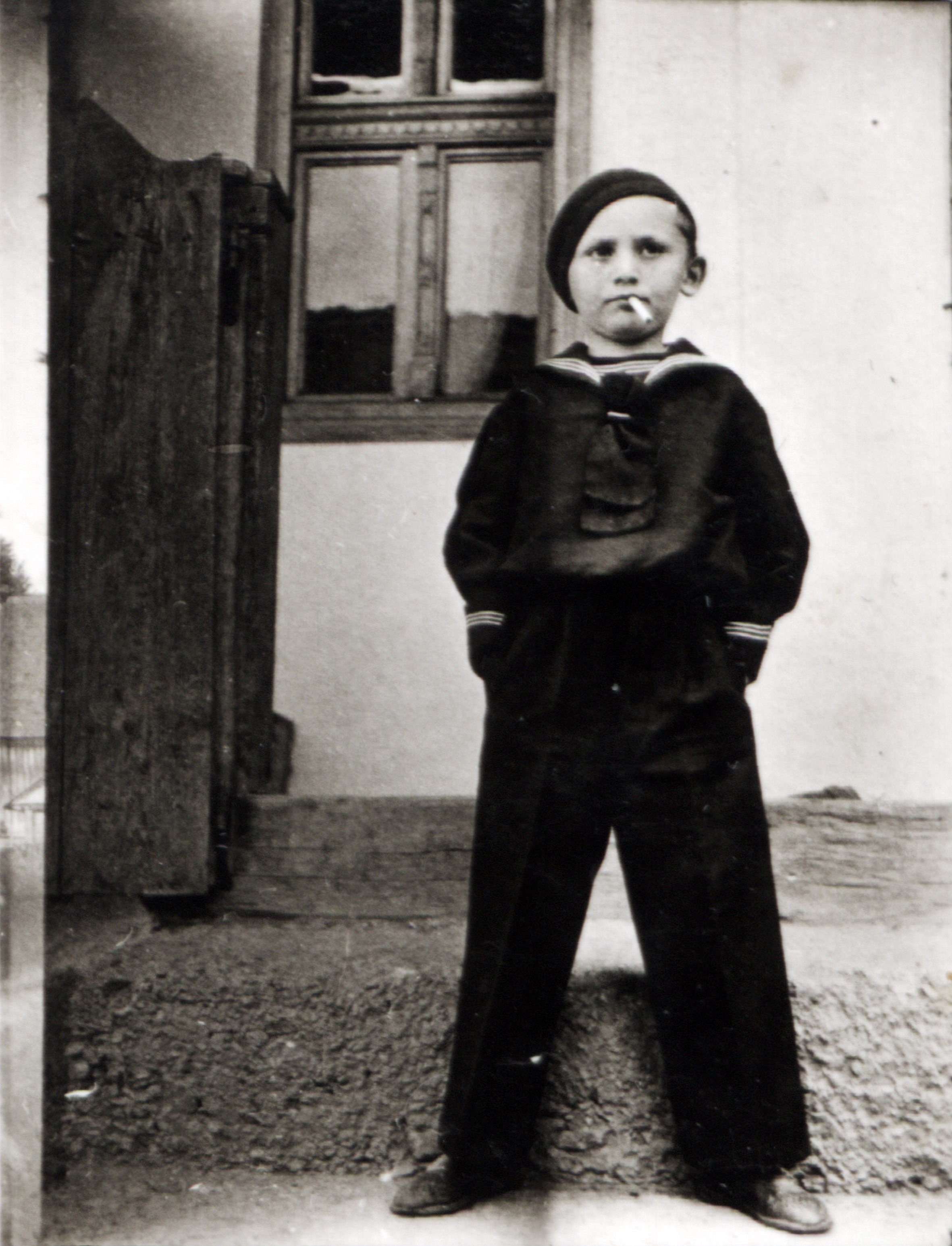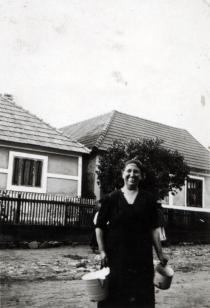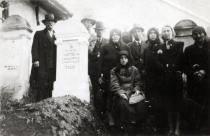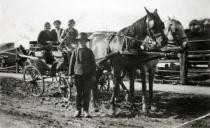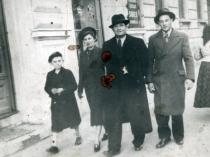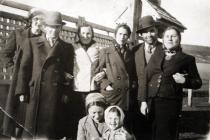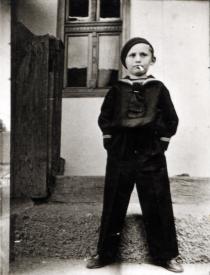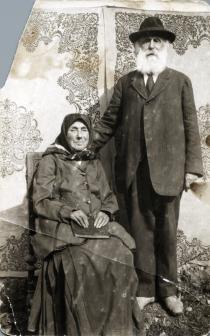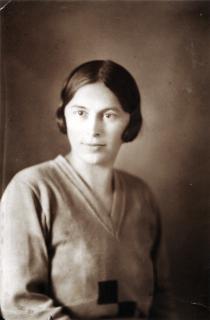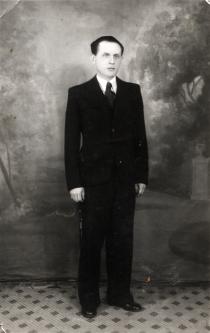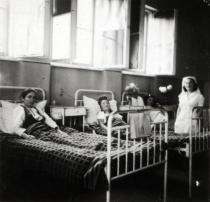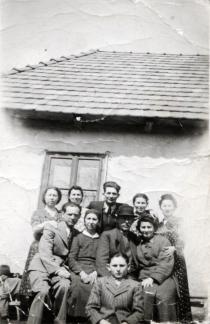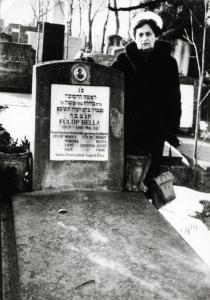This photo was taken in Aghiresu in the 1930s. This is Tibor Szinetar, the boy of my sister Margit. He was the only nephew my sisters and brother had. You can imagine how much love he got from all of us! He wasn't sure whom he loved most; was it his aunts, his mother, his father or his grandparents? However, his favorite was my father - at least this is what Tibor claimed.
At the age of 13, boys become members of the community. In Israel, girls celebrate this event too. The custom requires the child to hold a speech and say farewell to his childhood. So Tibor thanked his parents for raising him and, when he got to my father - even now, remembering this makes me cry - the poor child was overwhelmed with emotion: 'As for you, Grandpa - we all used informal ways of addressing in our family - I don't know how to say good-bye to you...' And the child was unable to go on; he hugged his grandfather and they were both crying, and the whole audience was crying, there were many people present, because my mother had organized a feast.
This was Tibor. He didn't try to flatter people; he just expressed his feelings as they were. He would come to us, kiss us, give us a hug, saying, 'Oh, I love you so much!', and he made sure everyone got an equal share of his love.
The boy was still in Aghiresu even when we were no longer there. He stayed with his grandparents and he went to elementary school there. We lived in the countryside, so we had hens, chickens, geese, dogs and the likes of them. Tibor would stand in the courtyard and the chickens, geese and ducks would sit on his shoulder and on his head. He knew the names of every calf or cow our neighbors had, and he behaved no differently from those people when in their presence. The peasants loved him. If he was in the street and saw an elderly man, he would take his hand and help him get to the other side. He was an extraordinary child!
When he got older, his parents took him to Cluj. He was 15 when they deported him. He got to a place where he met a schoolmate of his from Aghiresu, who's still alive today, in Israel, and a neighbor, who's now in Israel too. When the order was given to exterminate the children, they took them to the gas chambers. This boy who survived hid in a furnace and got away. All the others died.
